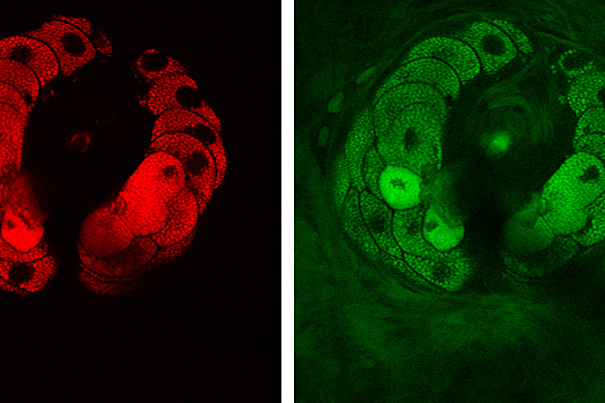Health
-

6 keys to a long, healthy life (ice cream included)
Also, why reading Ben Franklin beats climbing Mount Everest
-

Six cancers rising faster in younger adults than older ones
Large new global study fuels growing concern over trend of increases in several types

-

What’s next for GLP-1s?
Scientists eye new treatment targets for popular weight-loss drugs, from heart failure to addiction
-

Pricey blockbuster GLP-1s are costing users — and most of the rest of us, too
Health insurers are passing along cost for coverage in form of higher rates across the board, policy researcher says
-

Drinking 2-3 cups of coffee a day tied to lower dementia risk
Caffeinated tea also found to slow cognitive decline in study

-

New AI tool predicts brain age, dementia risk, cancer survival
Unlike other AI models, BrainIAC needs limited data to ID key neurological health indicators

-
Designing gene
Taking advantage of the simple color pattern of deer mice, Harvard researchers showed that small changes in the activity of a single pigmentation gene in embryos generate big differences in adult color pattern.
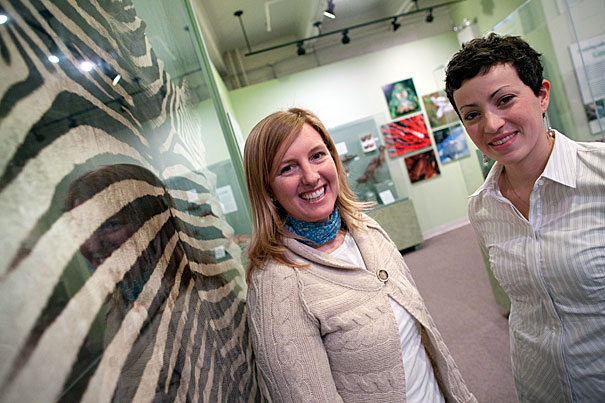
-
Beyond DNA
On a day when Harvard celebrated the accomplishments of the Human Genome Project, the Radcliffe Institute hosted a scientist whose work focuses not just on DNA, but on the mechanisms that control its expression.

-
Doing the neuron tango
A group of Harvard Stem Cell Institute researchers in the Department of Stem Cell and Regenerative Biology has discovered that excitatory neurons control the positioning of inhibitory neurons in the brain in a process critically important for generating balanced circuitry and proper cortical response.
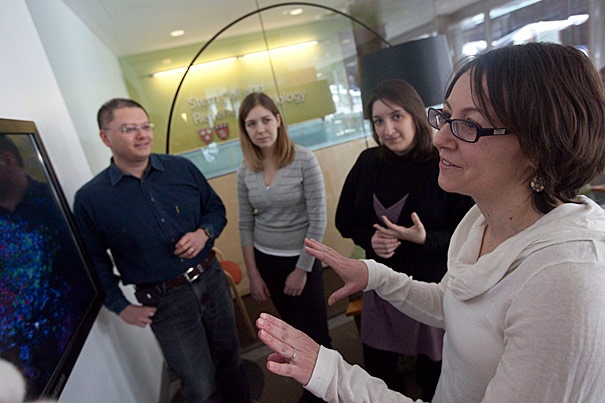
-
Following the genomic road map
Harvard President Drew Faust hosted a panel discussion on the legacy of the Human Genome Project Feb. 22 at Sanders Theatre.

-
Nabokov’s blues
Ten years before his novel “Lolita,” Vladimir Nabokov published a detailed hypothesis for the origin and evolution of the Polyommatus blues butterflies. A team, led by a Harvard professor, is proving him right.
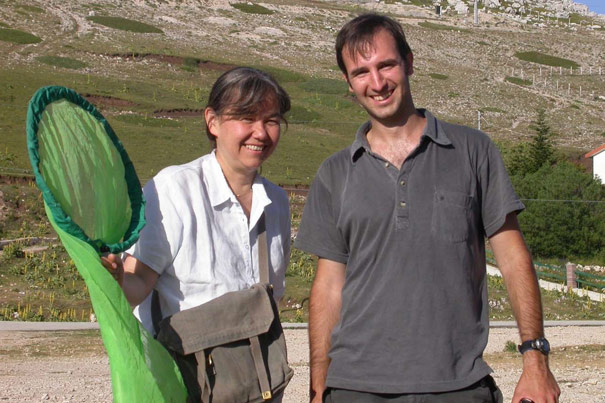
-
Passion and the flowering plant
The Arnold Arboretum’s new director, William “Ned” Friedman, has been intrigued by plants’ structure and origin — and captivated by their beauty — for three decades.

-
The ‘core pathway’ of aging
Harvard researchers at the Dana-Farber Cancer Institute have identified the root molecular cause of a variety of ills brought on by advanced age, including waning energy, failure of the heart and other organs, and metabolic disorder.

-
Genes tied to prostate cancer uncovered
For the first time, researchers have laid bare the full genetic blueprint of multiple prostate tumors, uncovering alterations that have never before been detected and offering a deep view of the genetic missteps that underlie the disease.
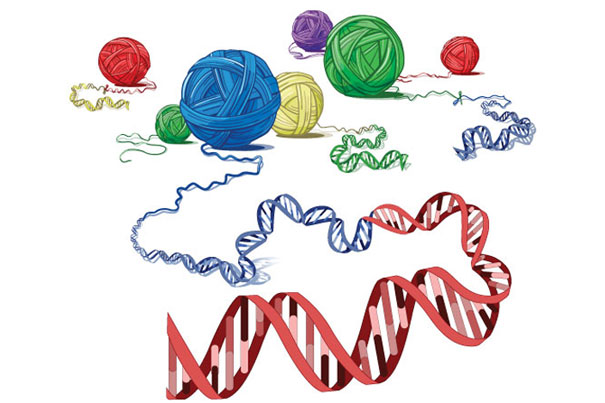
-
Two studies prove value of iPS cells
A team of Harvard Stem Cell Institute (HSCI) researchers, in collaboration with scientists at Columbia University, have demonstrated that many iPS cells (stem cells created by reprogramming adult cells) are the equal of human embryonic stem cells in creating human motor neurons, the cells destroyed in a number of neurological diseases, including Parkinson’s.
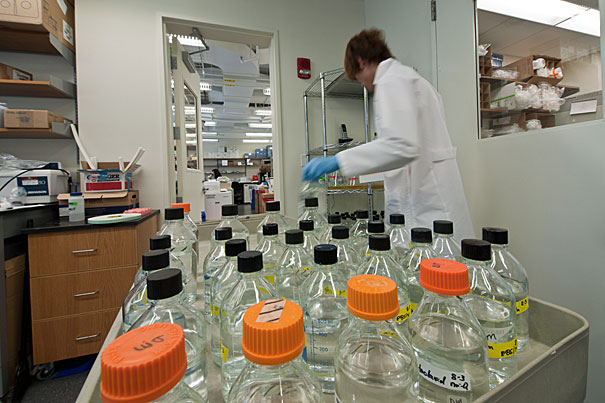
-
Killing the ‘fiery serpent’
International health workers are on the verge of eliminating guinea worm disease from the planet, marking the second time humanity has eliminated a malady that once plagued millions.

-
Adult kidney stem cells found in fish
It has long been a given that adult humans — and mammals in general — lack the capacity to grow new nephrons, the kidney’s delicate blood filtering tubules, which has meant that dialysis, and ultimately kidney transplantation, is the only option for the more than 450,000 Americans who have kidney failure.
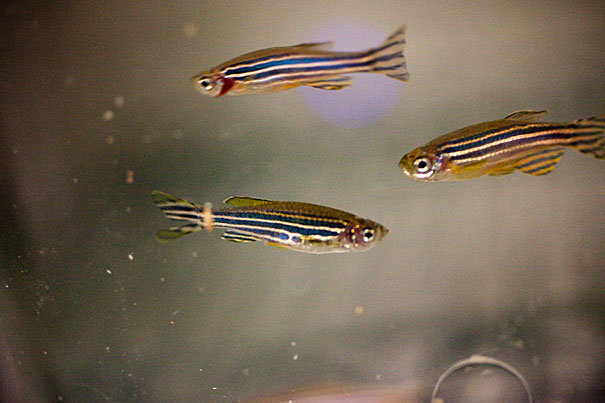
-
Plotting the demise of malaria
Authorities on malaria from around the world came to Harvard Medical School to participate in a forum discussing a change in strategy in the battle against malaria, moving from control to eradication.

-
Eight weeks to a better brain
Harvard researchers at Massachusetts General Hospital find that participating in an eight-week mindfulness meditation program appears to make measurable changes in brain regions associated with memory, sense of self, empathy, and stress.

-
What made Darwin first
Evolution icon Charles Darwin rushed “On the Origin of Species” into print to beat the competition, but neglected to credit early thinkers on the subject, who let him know it after the book’s 1859 publication, leading to his appended “Historical Sketch” in later editions.
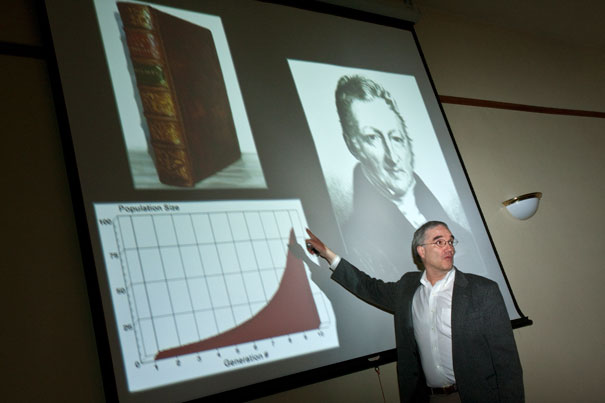
-
Checking in, saving lives
Harvard researchers have estimated the likely cost-effectiveness of post-discharge follow-up phone calls to smokers hospitalized with acute heart attacks. In a report in the Archives of Internal Medicine, the researchers suggest that phone calls to these discharged smokers encouraging them to quit would yield significant health and economic gains.

-
Expecting better
Harvard researchers in the Children’s Hospital Boston Informatics Program have created a model for predicting a drug’s tendency to cause birth defects.

-
Tiny donors
In the first study to look at the potential for organ donation from dying infants in a Neonatal Intensive Care Unit (NICU) setting, Harvard researchers from Brigham and Women’s Hospital, Children’s Hospital Boston, and Beth Israel Deaconess Medical Center demonstrated that an estimated 8 percent of NICU mortalities would be eligible for organ donation after cardiac death.

-
Newborns need for vitamin D
The vitamin D levels of newborn babies appear to predict their risk of respiratory infections during infancy and the occurrence of wheezing during early childhood, but not the risk of developing asthma. Results of a study in the January 2011 issue of Pediatrics support the theory that widespread vitamin D deficiency contributes to risk of infections.

-
Mixed messages
A comparative analysis found wide disparities in the results of four common measures of hospital-wide mortality rates, with competing methods yielding both higher- and lower-than-expected rates for the same Massachusetts hospitals during the same year.

-
Placebos work — even without deception
Patients who were knowingly given placebos for irritable bowel syndrome experienced significant symptom relief when compared with controls.

-
Seeing double
By comparing the DNA of modern elephants from Africa and Asia to DNA extracted from two extinct species, the woolly mammoth and the mastodon, researchers have concluded that Africa has two — not one — species of elephant. Now that we know the forest and savanna elephants are two very different animals, the forest elephant should become a bigger priority for conservation purposes.

-
The face looks familiar
People’s ability to recognize and remember faces peaks at ages 30 to 34, about a decade later than most other mental abilities, a new study says.

-
Dairy fat may help not harm
Scientists at the Harvard School of Public Health and collaborators from other institutions have identified a natural substance in dairy fat that may substantially reduce the risk of type 2 diabetes.

-
Female chimps treat sticks as dolls
Researchers at Harvard University and Bates College say female chimpanzees appear to treat sticks as dolls, carrying them around until they have offspring of their own. Young males engage in such behavior much less frequently.

-
The nose knows
Harvard researchers have shed light on how the sense of smell works to induce behavior, linking patterns of electrical spikes in the brain to behavior in laboratory animals.

-
Sick to death
Harvard School of Public Health researchers are mounting a major study of chronic disease in four African nations, which organizers hope will provide a foundation for understanding and treating chronic ailments like heart disease, diabetes, and cancer.
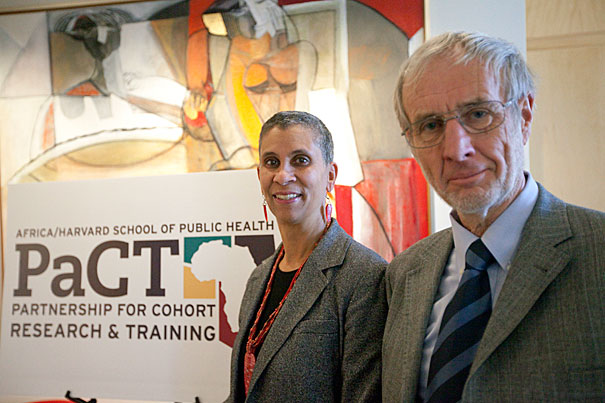
-
Across 160 years, Darwin speaks
The discovery of an unknown 1848 letter by the great naturalist sheds light on a murky part of his life, and on a friendship that eventually went awry.

-
Perspectives on global health
Media mogul Ted Turner and Harvard School of Public Health Dean Julio Frenk kicked off a new Internet-focused communication effort by discussing problems in global health.
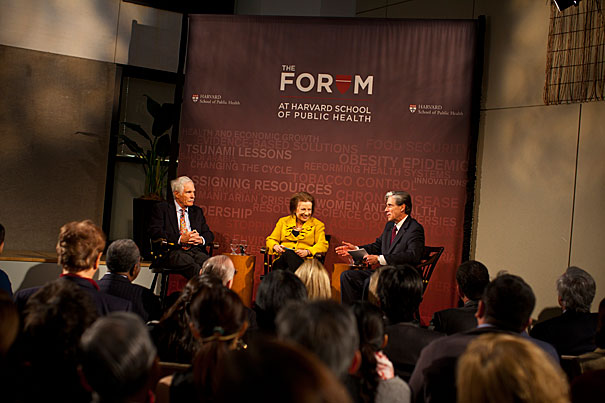
-
Cholera strain tied to South Asia
A team of researchers has determined that the strain of cholera erupting in Haiti matches bacterial samples from South Asia and not those from Latin America.

-
Tracking molecules at video rate
A novel type of biomedical imaging, made possible by advances in microscopy from scientists at Harvard University, is so fast and sensitive it can capture “video” of blood cells squeezing through capillaries.
